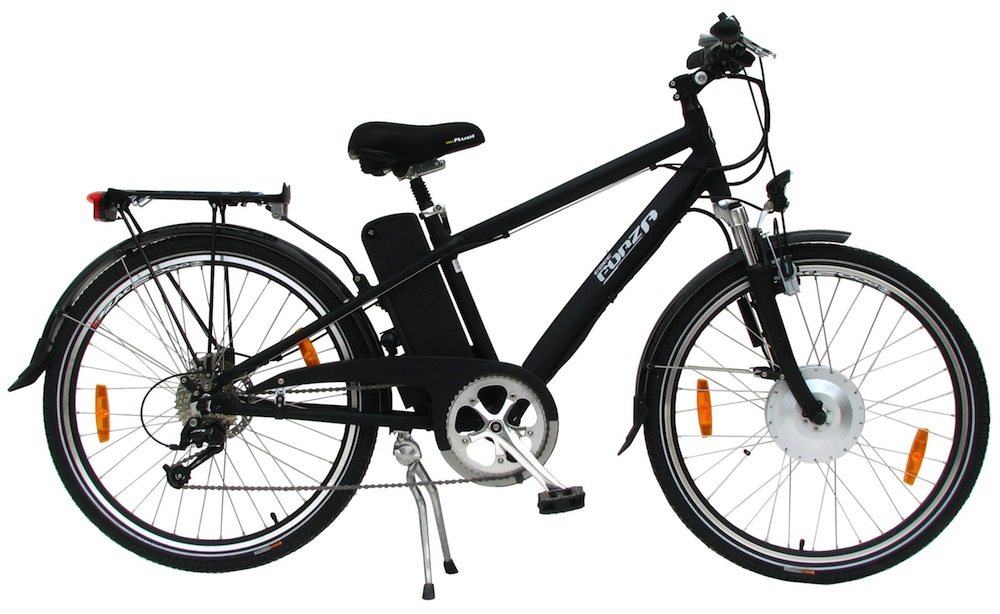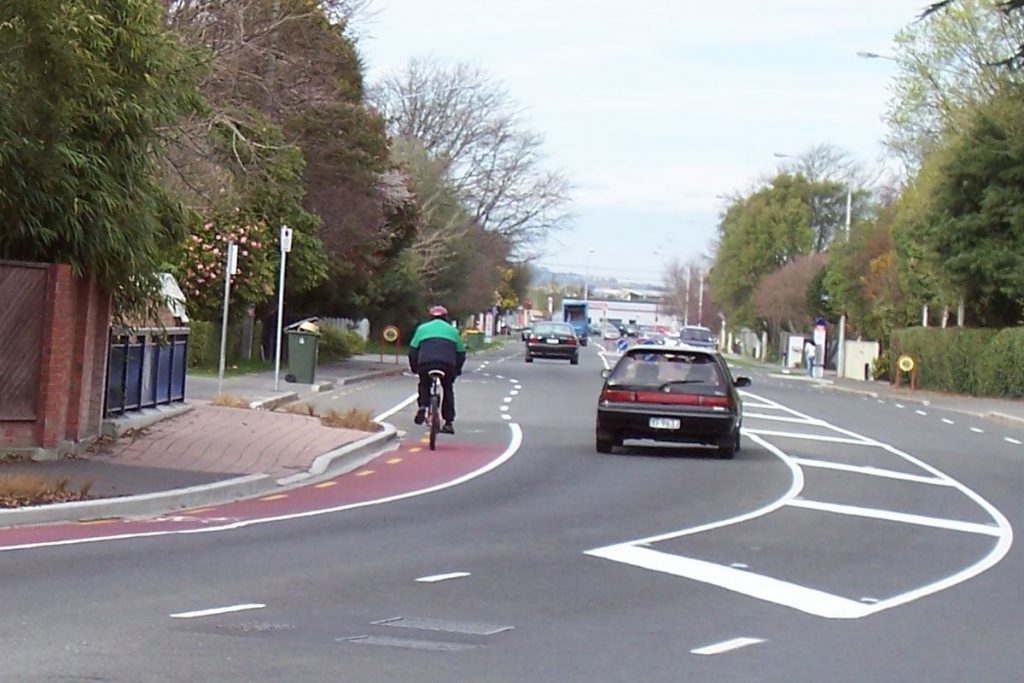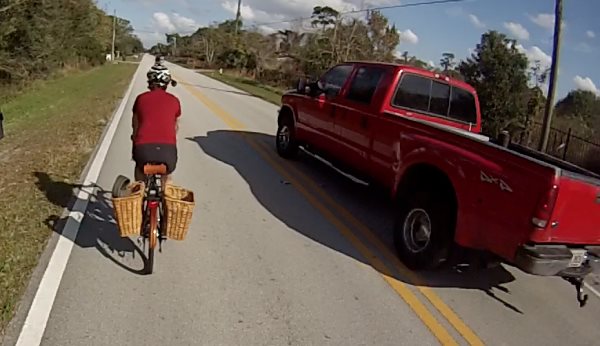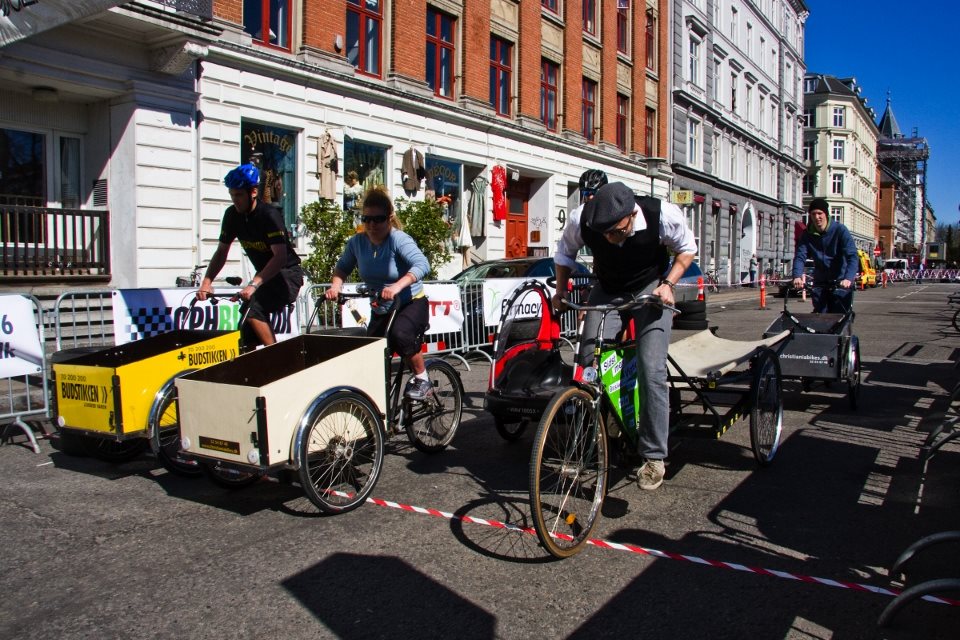This is the start of a planned series of articles to help readers understand some of the legal ins and outs of cycling in NZ. I get lots of questions about this, and clearly there is a bit of confusion and misunderstanding on some matters, so I thought I’d try to fill in some of the blanks for you.
Disclaimer: I am not a lawyer; this is all based on my research into these matters over the years (and I welcome any legal expertise offered by our readers where you feel any correction/clarification is required). While this material should help you be aware of the basics of the relevant legislation, as always, you should seek your own independent legal advice if faced with a Police matter relating to these issues. Be aware too that overseas laws may differ from what is stated here.
Obviously there are lots of things that people would like to know about give way rules, keeping left, riding two abreast, and so on (if you have any specific questions you’d like me to look at, please contact me). But I thought that it made sense to start first by getting the fundamentals and definitions right, to avoid any later confusion. Hence I’ll begin with the basic question: “what is a cycle”?
This seemingly innocuous question has a few interesting implications. Firstly, here’s what the Land Transport (Road User) Rule 2004 defines a “cycle” as:
cycle –
(a) means a vehicle that has at least 2 wheels and that is designed primarily to be propelled by the muscular energy of the rider; and
(b) includes a power-assisted cycle
Seems fairly straightforward, although you may be wondering about what is defined by a “power-assisted cycle”. The Rule clarifies this further to mean “a cycle to which is attached one or more auxiliary propulsion motors that have a combined maximum power output not exceeding 300 W” – typically your standard electric bike. Because of the confusion around some of the “bikes” out there, NZ Transport Agency goes even further to clarify what is considered a humble bike and what might need either vehicle registration or driver licensing (e.g. a petrol-engine powered bike is considered a “moped” – assuming that you could get it registered…).

Some further definition distinctions are important:
(1) According to the Land Transport Act 1998, a cycle is considered a “vehicle” (along with skateboards, scooters, Segways, etc). However it is not considered a “motor vehicle” (unlike the usual cars, trucks, buses, motorbikes and mopeds); that exception also includes power-assisted cycles. {I get a bit annoyed (especially in technical reports) when I hear people refer to “vehicles” when they actually only mean motor vehicles…}

(2) A cycle is also not considered a “wheeled recreational device” (which is a catch-all for various small-wheeled machines like skateboards and scooters) unless the wheels are no more than 355mm (14 inches) in diameter; nor is a cycle a “mobility device” (which typically includes mobility scooters, wheelchairs, and the like). There was an intriguing case back in 1999 (Gallagher vs NZ Police) where the accused unsuccessfully argued that his bicycle was in fact a “wheelchair”, due to his physical incapacity, and thus he was exempt from wearing a helmet. Interestingly, when I had a ruptured Achilles ten years ago, my bike proved to be a great “one-legged wheelchair” for those distances that were a bit too far on crutches…

(3) A “driver” of a vehicle “includes the rider of the motorcycle or moped or bicycle”, and any references to “drive” or “driving” also relate to someone cycling.
These points lead to some interesting outcomes:
- Anything in the Land Transport Act or Road Rules that refers to a “vehicle” or “driver” also applies to someone cycling, unless explicitly excluded. Hence, cyclists typically have to follow the same rules as motorists, such as giving way, obeying signs, not speeding, and generally not being “careless or inconsiderate” (conversely, motorists must generally also apply the same obligations towards cyclists as they would any other motor vehicle). If you have a crash involving a cycle, all parties must also stop and render any assistance, and report it to Police.
- There are, however, plenty of exceptions that specifically exempt cyclists from the same requirements as motorists (for better or worse). These include cyclists turning right at intersections from the left, stopping in an advance stop box, not having to signal in roundabouts, and riding two abreast. Motorists can also overtake cyclists even with a yellow centreline; the no-overtaking restrictions only apply to other motor vehicles and “animal-drawn vehicles” (resist the cute observation that a bike is, technically, an animal-drawn vehicle too…).

- Cyclists are by definition also exempt from anything required only of motor vehicles. This includes the important ones of needing a driver licence and registration for your motor vehicle, and not exceeding drink-driving limits. However, before the latter inspires you to go out on an all-night bender on your bike, remember that the Police can still charge you with careless behaviour on a bike… (apparently though, you can’t be found “reckless or dangerous” on a bike)
- While virtually every aspect of NZ traffic law refers to “cyclists” and “cycles”, there is one curious exception – helmets. Strangely, the Road User Rule states “A person must not ride, or be carried on, a bicycle on a road unless the person is wearing a safety helmet of an approved standard that is securely fastened”. So I guess that, if you have your bakfiets trike or recumbent three-wheeler (or even just put on your training wheels?), you are free to ride with the wind in your hair… I don’t know, this particular scenario has never been put to the test in Court apparently (the judge in the Gallagher vs NZ Police 1999 case noted this possibility).

As you can see, even a simple question of “what is a cycle?” results in some important implications for people riding their bikes (or “cycles” of some description). When we resume our legal series, we will next consider the question of where can you actually ride your bike and the rights/obligations that go with that.
Do you have any tricky legal questions about cycling in New Zealand?

Very interesting post. Thanks. Look forward to seeing the others in the series.
Very informative thank you. A motor vehicle overtaking on a double yellow – I wonder how many drivers know that? It might make them less impatient if they knew they were able to do that rather than fume behind a cycle rider …
Thanks Glen! Will keep this link in the toolbox, looks like it will get frequent use.
What about those electric scooters that have pedals and a max power of 300W ? The ones styled like a step-through scooter.
Does towing a trailer make your bicycle into a cycle by the above definition?
Unicycles – absolutely have less than two wheels, so where do they sit on the legal spectrum? One chap here at work has ridden the width of the UK on a unicycle, he commutes to work on it now.
Cameras (gopro/action cameras) on your bike – admissible as evidence ? A good idea legally?
You might want to have a look at NZTA Research Report 621 on e-bikes and other low powered devices for more info (https://www.nzta.govt.nz/resources/research/reports/621/), but in a nutshell: (1) an e-bike has to be propelled predominantly using pedal power (i.e. not just pedals as vestigial decorations), so most scooter-style electric cycles would be considered a moped; there is NZ case law on this. (2) The law only refers to “cycles” (except for that weird bike-helmet clause), so a bike towing a trailer is still a cycle. (3) a uni-cycle would be a “wheeled recreational device”; cycles have at least 2 wheels.
Hey, I’m making a 4 wheeled bike car type thing with 20″ BMX wheels and no pedals. It’ll be powered by a 2kw electric motor and have seats for two adults or one adult and two kids. Would you know how I should classify this? Are there size limitations etc to be in the bike lane? Should I NOT be in the bike lane because I’m not pedalling? 1.1m wide, 2m long, and 1.5m tall
Hi Rollo, a 4-wheeled vehicle with a 2kW motor is basically a motor vehicle. It doesn’t meet the requirements for definitions of cycles, wheeled recreational devices, mopeds or motorcycles due to its motor size or number of wheels. In theory this means that to operate it on the road you would need to get it registered and properly warranted – probably difficult considering it is likely to be missing some of the required vehicle systems expected of a motor vehicle. So in practice you would need to limit your use of this “vehicle” to off-road locations…
No pedals? Its instantly not-a-bike.
Given you have over 300W of power as well, even having pedals would make no difference. You’re building an **electric car** so if you use it on the road then needs registration and WOF, and require a valid drivers license. It would also have to drive in the traffic lanes and would be excluded from cycle facilities.
Consider discussing your plans with one of the LVV certifiers. There is no motorcycle LVV specialist in Chch, but there is one in Temuka and another in Timaru. https://lvvta.org.nz/documents/suplementary_information/certifier_lists/lvv_certifier_list_motorcycles_and_trikes.pdf
There are two LVV general certification guys in Christchurch, but neither does Electric according to the list. The nearest Electric guy is Dunedin according to https://lvvta.org.nz/documents/suplementary_information/certifier_lists/lvv_certifier_list_website_general_motor_vehicles.pdf
I suggest you run your plans past one of them for discussion – not sure what they cost per hour.
If you only ever use it on private property only then there are no rules and you can do what you want. Note, a park is public property, as is a beach or a riverbed.
Try talking to someone who rides a motorcycle trike. Many of them are converted “cars” and the builders have experience with meeting the legal requirements.